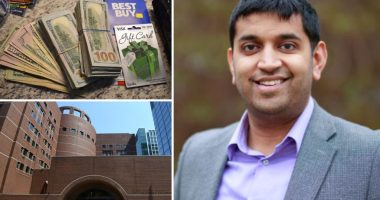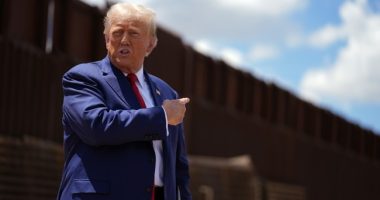The head of the Smithsonian Institution is apologising for the dark history behind its collection of human remains.

Most of the remains, the Post found, were collected in the early 1900s under the direction of anthropologist Ales Hrdlicka, who sought to advance his now-debunked theories that white people were superior to people of colour.
“It was abhorrent and dehumanising work, and it was carried out under the Smithsonian’s name,” Bunch wrote in an op-ed published on August 20. “As secretary of the Smithsonian, I condemn these past actions and apologise for the pain caused by Hrdlicka and others at the institution who acted unethically in the name of science, regardless of the era in which their actions occurred.”
He continued, “I recognise, too, that the Smithsonian is responsible both for the original work of Hrdlicka and others who subscribed to his beliefs, and for the failure to return the remains he collected to descendant communities in the decades since.”

Twist after woman flees cruel abductor
Hrdlicka, who headed the Smithsonian’s physical anthropology division from 1903 to 1941, used highly unethical methods to build up the institution’s collection of human remains, working with researchers and doctors to acquire them from morgues, hospitals and graveyards, according to the Post. Decades later, very few of the brains in its collection have been repatriated, the Post reported.
Read Related Also: Being physically fit when younger can reduce risk for 9 types of cancer: study
But as the Post’s reporting notes, many of these descendants and tribes are unaware that the Smithsonian even has these remains.
The law also only applies to American Indians, Alaska Natives and Native Hawaiians, leaving out many other communities whose remains were also taken without proper consent.
The Smithsonian has recently undertaken efforts to address this chapter of its history. Last year, the institution adopted a policy enabling the return of unethically acquired remains to their communities of origin.
“Our forthcoming policy will finally recognise these remains not as objects to be studied but as human beings to be honored,” wrote Bunch, the first Black person to serve as head of the Smithsonian. “It is a long-overdue shift, and I regret that human bodies were ever treated with such disrespect at our institution.”
Universities across the US have also been reckoning with their collections of stolen ancestral remains and sacred objects. The University of North Dakota, the University of California, Berkeley and Vassar College are among the educational institutions that have vowed to repatriate remains and artifacts taken from Indigenous communities.








